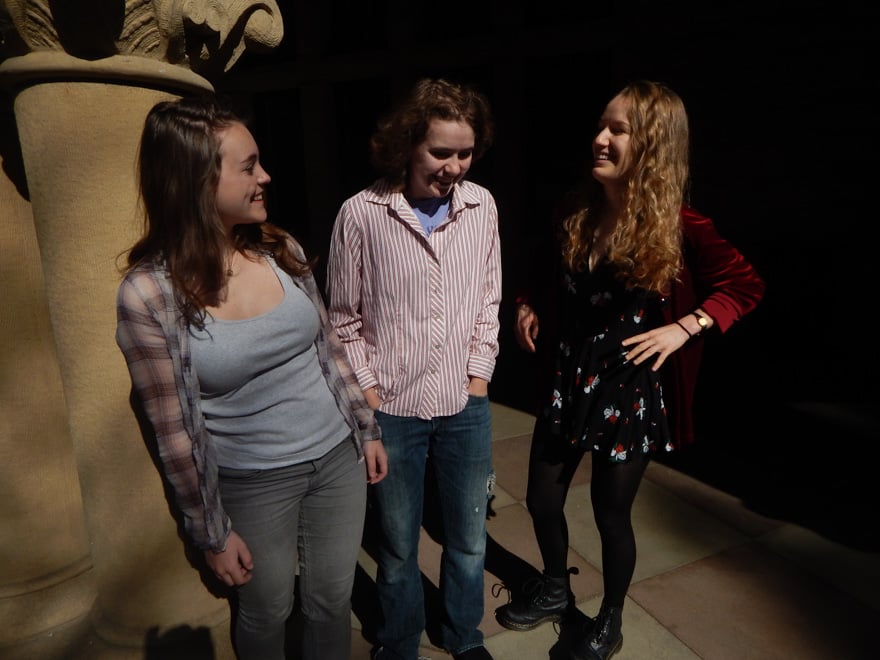A new student group sets out to show that all the world’s truly a stage – with more balanced gender representation.
Women in Theater (WiT), a newly formed theater company, seeks to provide a platform for women and non-binary students interested in theater to have the opportunity to explore more roles in the traditionally male-dominated field. Cofounded by Clay Slang ’18, Lillian Bornstein ’18 and Ezra Jackson-Smith ’18, the company recently held their first interest meeting.
WiT’s three cofounders have all been active in the theater community on campus. Their common interest in gender issues and putting on shows with alternative-gendered castings led to the formation of the company.
“It was the three of us that came together and said, ‘Why is there not a theater group that caters to women’s interests and why is there not a friendly space to talk about gender in theater?’” Slang said.
In general, women in theater have been underrepresented not only in casting but also in production. Only about 24 percent of all plays produced across the country in 2014 were written by a woman, according to American Theatre magazine. Hoping to address these issues, the company will also serve as a platform for performing original work written by women and non-binary people in the community.
“It’s harder for female and non-binary people to succeed [in theater] because of the very specific types of roles that are generally available and the way the industry works,” Bornstein said. “There are frequently many more female and non-binary artists than there are roles available, and even when they are available, they’re frequently not as dynamic.”
Although the club is meant to address the need for more female opportunities in theater, the idea for WiT is not a response to any perceived discrimination on campus.
“The student groups on campus do a pretty good job of being inclusive, but just the theatrical canon and the shows that are available with conventional casts are still pretty masculine centered and binary,” Bornstein said. “[Our company’s] not a critique of any of the groups on campus, it’s more of accessing a general need in the theater community.”
For their company’s debut, WiT members decided to produce “12 Angry Men.” The play depicts a jury swaying between declaring guilty or not guilty in a murder case. One juror’s conviction slowly influences the other 11, one man at a time. WiT will be looking for an entirely non-male cast to portray the characters. The goal is to act out the unique personalities rather than acting based on any male stereotypes, according to Jackson-Smith.
“[The play] contains 12 men, but there isn’t much in the characters that make it necessary for the actors to be men,” Jackson-Smith said. “It’s also an acting-centric show that doesn’t have much technical flair. It’s easy to make intimate and delve into the characters, which is a nice way to start the group.”
As a part of its mission for female empowerment in theater, the company also has a Women in Theater Tech Initiative (WiTTI) program to encourage more female participation in tech. WiT also plans to hold a series of workshops throughout the year to encourage interest in theater among the greater community.
“[WiTTI is] aimed at getting more women involved in tech,” Slang said. “It’s definitely true that there are not as many women doing tech.”
WiT recognizes that there are already many theater company groups on campus. However, the co-founders believe competition will not be a problem, since many actors and actresses participate in multiple theater groups.
“A lot of our members have been involved in other theater communities, so there is a lot of room for artistic collaboration [with other groups],” Bornstein said.
Audition opportunities for “12 Angry Men” have been released. Those interested in acting and production can contact Slang for more information.
Contact Ariel Liu at aliu15 ‘at’ stanford.edu.
This article has been updated to reflect students’ current identities.
